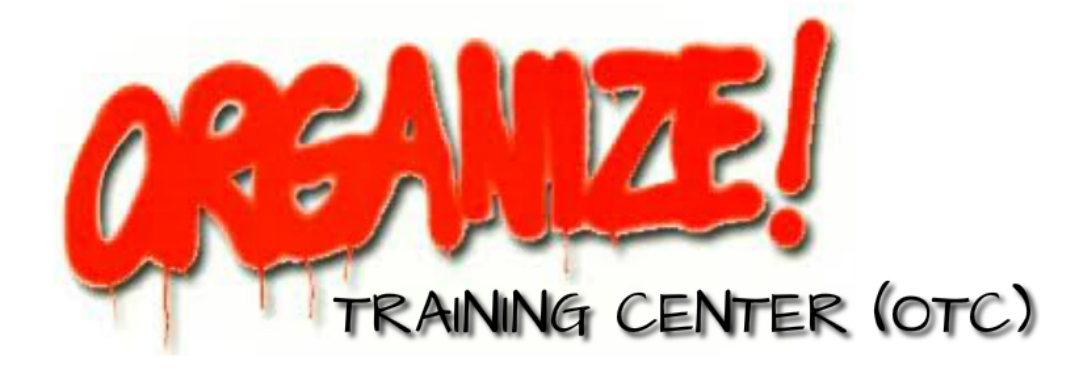|
(On September 22, 1986, in the pages of the liberal Protestant weekly, Christianity & Crisis, I penned the following thoughts in a review of Tex Sample’s partly autobio-graphical and still-relevant Blue Collar Ministry entitled "Listen to Those Blue-Collar Blues." You can download the full article here.)
Sample’s approach to his subject is broad. [It] begins with a statement of the mainstream culture’s “religion of winning” and takes a good look at the reality of losing and what it does to the losers…Anglo, blue-collar Protestant women and men have no [discrimination against them] on which to hang their hats. They lack a cultural notion of peoplehood that might be a source of pride; they lack the political, economic, and moral concepts of citizenship, class, and equality that might provide them with a sense of outrage and injustice about the status quo. The concept of class might help them understand their position, but that idea is not considered legitimate by mainstream America. America’s TV talk shows feature no Julian Bonds or Gloria Steinems who can give visibility to this group of Americans. If we can appreciate this, we begin to appreciate the pain of this group. We begin to understand the arrogance of the “redneck” characterization. Self-blame is not only the phenomenon of highly marginal people. It is also the conclusion blue-collar Americans frequently draw when they wonder why success has passed them by... Sample’s intention is not just to empathize or to understand—though he is excellent at both. His primary purpose is to argue that churches involved in efforts to bring about a more just society must include his people in their thinking and strategy. Their powerlessness and alienation are as important as anyone’s. Sample identified broadly-based community organizing “as an important vehicle” to overcome this powerlessness and alienation. He could have added union organizing as well because, organizing [is a] basis for overcoming “the hidden injuries of class, the subjective feelings of alienation, loss of dignity, and sense of failure” of this politically volatile and important group of people... The Reagan/Republican strategy has been to assume the alienation and relatively low participation of lower-income and minority voters and to build instead an electoral coalition consisting of the middle-class, upper-income voters, and the majority of the white working class. This strategy has been successful. A [reason for this success is that] most white working-class Americans…blame the new persons at the table who want a piece of [a shrinking] pie for their predicament. It follows that they resent them. [Another reason for Republican success] is to be found in the arrogance toward blue-collar whites frequently found in liberal and radical intellectual and political circles and in some of the leadership of minority communities and the women’s movement. Nothing much has changed since 1986. We are now reaping the results in the phenomenon of Donald Trump. When people with real grievances aren’t organized in a small “d” democratic way, in organization rooted in democratic values, they are susceptible to being mobilized by a demagogue: Donald Trump. They are also susceptible to being organized in a way that gives vent to their hostility to The Other: the Tea Party. A widespread strategy is to write this group off, and count on the country’s changing demography: soon a majority will be people of color. This strategy has two problems: for the most part, those who lead it are reluctant-to-unwilling to challenge the present concentration of power and wealth in the country because they are often the beneficiaries of its trickle-down economics in the form of foundation, government and corporate grants for their narrowly-defined programs. They are also unwilling to support organizing a constituency from which they are now deeply alienated because to do so would require developing relationships with that constituency rather than judging and making a caricature of it. Finally, they are reluctant because a program that might encompass the interests of both would also be a program that challenges some of their patrons and sponsors. For example: the corporate profiteers of charter schools. In part because of this history, Bernie Sanders didn’t do too well among voters who would have been well-served by his program. But my interest is not in electoral mobilization, it is in the kind of on-going small “d” democratic and democratic values-based organizing identified above. I hope the Trump primary victory and electoral success (even in defeat) will awaken new interest in this kind of organizing.
0 Comments
Leave a Reply. |
AuthorMike Miller has had almost 60 years experience as a community organizer. Before founding the ORGANIZE! Training Center in San Francisco in 1972, he was a founding member of SLATE and an SNCC field secretary. In 1967, he directed one of Saul Alinksy's community organizing projects. Archives
February 2018
Categories(The quote at the top of the
page is by Desmond Tutu.) |
(415) 648.6894 [email protected] 442 Vicksburg, San Francisco, CA 94114
Copyright© Since 2016, ORGANIZE! Training Center. All rights reserved.
Copyright© Since 2016, ORGANIZE! Training Center. All rights reserved.


 RSS Feed
RSS Feed